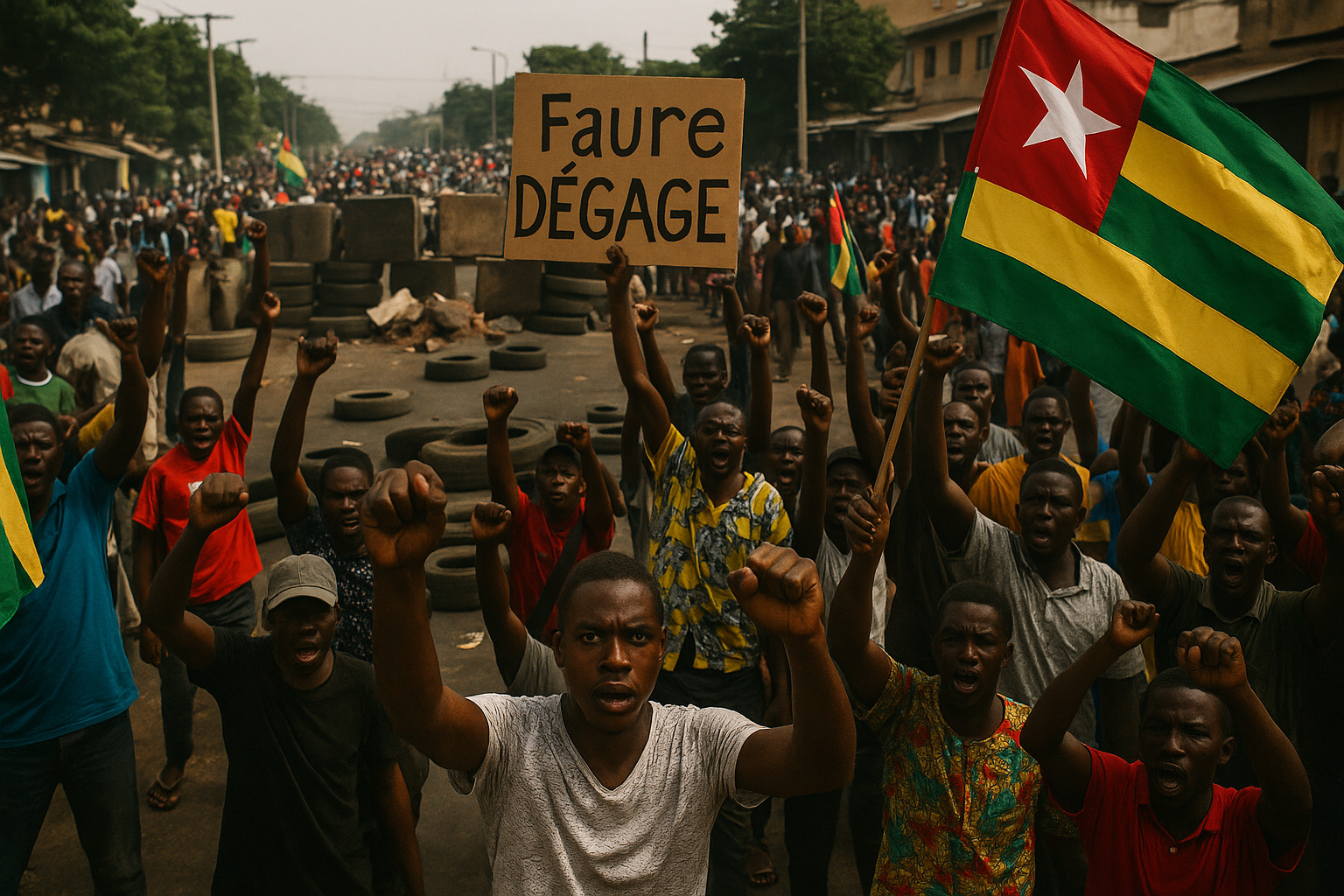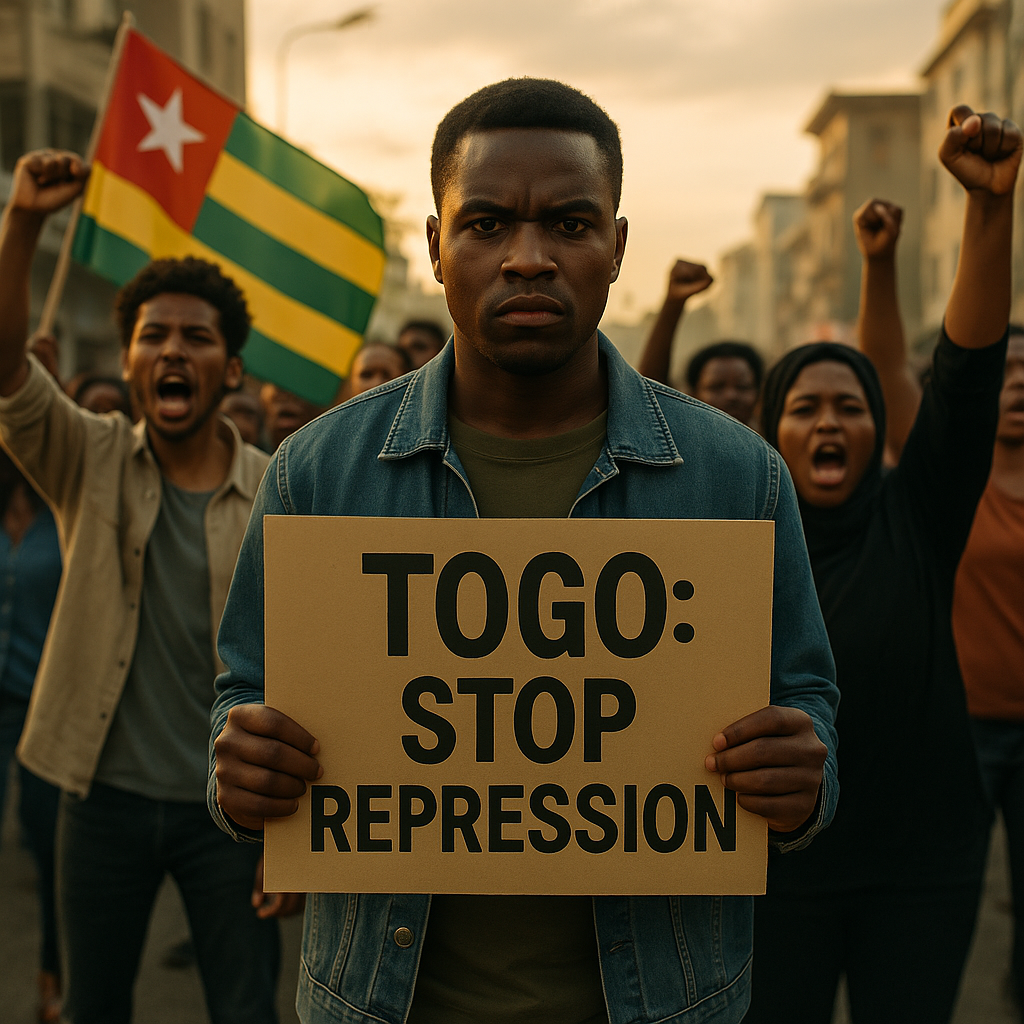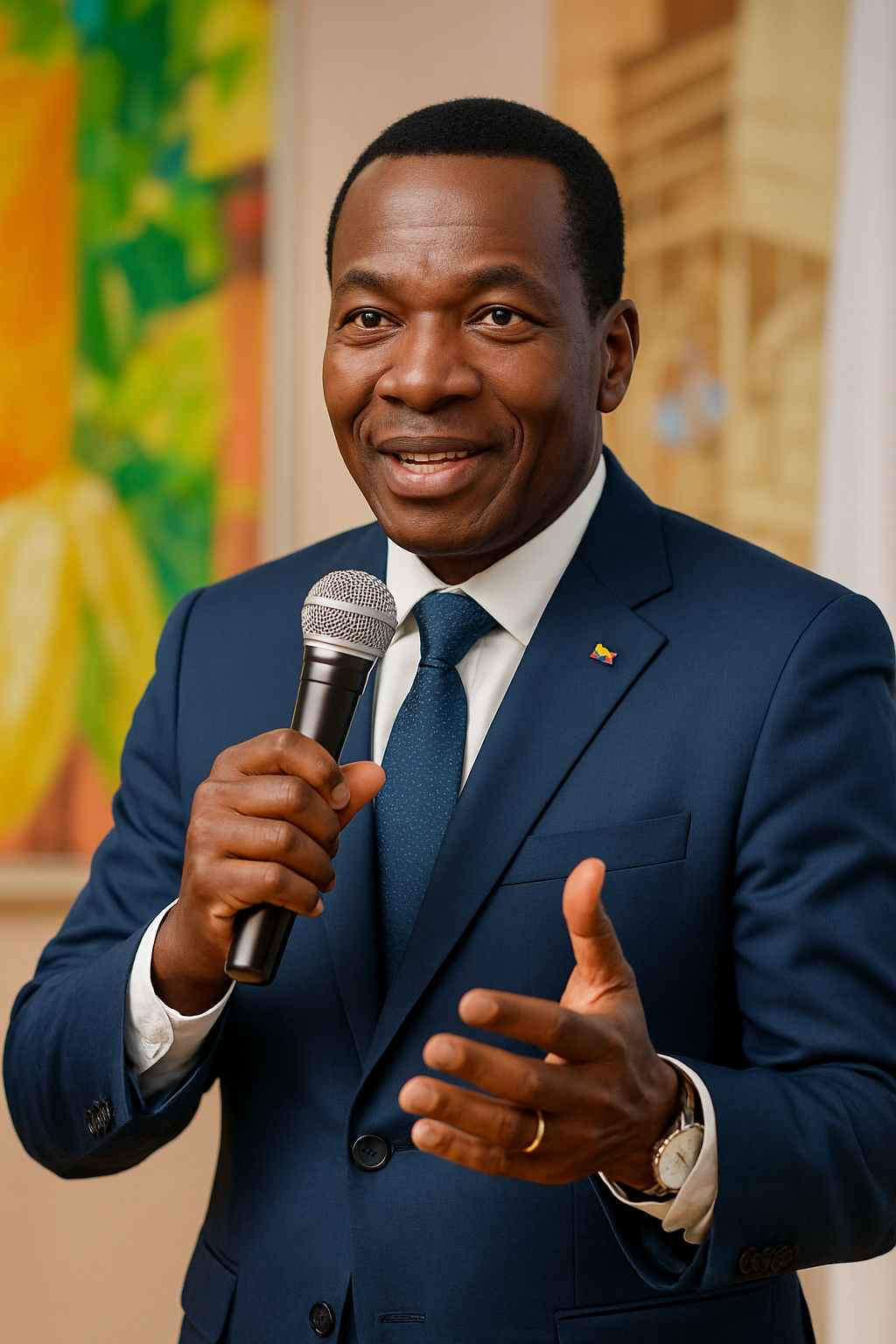In mid-2025, Togo finds itself in the eye of a political storm. Youth-led protests have erupted across Lomé and other cities in response to constitutional reforms perceived as entrenching the ruling Gnassingbé family’s decades-long grip on power. The resistance crystallized around issues like rising living costs, shrinking democratic space, and a highly publicized crackdown on dissent. As Togo confronts this pivotal moment, a new generation is challenging a regime unchanged since the 1960s—a signal that the country’s future may finally be up for democratic contestation.
Spark: A Rapper’s Arrest Ignites Discontent
The detention of popular rapper Aamron (Tchala Essowè Narcisse) in late May triggered the initial wave of protests. Known for rhymes criticizing political corruption and social stagnation, Aamron was arrested without charge and allegedly detained incommunicado and mistreated. His case galvanized youth, civil society, and digital communities, who rallied under slogans like “Libérez Aamron!” The arrest became emblematic of a broader strategy of political repression that has silenced dissent for too long.
Constitution by Parliament: A ‘Coup’ Without a Vote
In March 2024, parliament adopted constitutional reforms transferring executive power from the directly elected presidency to a newly created position: President of the Council of Ministers. This by-parliament transformation abolished future direct presidential elections, effectively enabling President Faure Gnassingbé to remain in power indefinitely. In May 2025, Gnassingbé assumed this powerful role—skirting term limits and consolidating dynastic rule—while an opposition figure was installed as a ceremonial president. Critics call this a “constitutional coup.”
Escalation: Protesters Brutally Repressed
Between late June and early July, protests escalated:
- Demonstrators blocked roads, burned tires, and demanded the resignation of Gnassingbé.
- Security forces responded with tear gas, baton charges, mass arrests, and, according to witnesses, arbitrary detentions and beatings.
- Human rights groups attribute at least seven fatalities—including civilians found drowned in lagoons—and hundreds of injuries to excessive force.
These actions, reportedly involving plainclothes militia in addition to official security forces, signified an alarming escalation in state-sponsored violence.
Broader Grievances: Economic Strain Meets Political Frustration
The protests are about more than constitutional changes. Citizens, especially youth, cite widening inequality, rampant nepotism, joblessness, and soaring electricity and food prices as key motivators . The government’s lavish memorial for Gnassingbé’s late father in February, contrasted with persistent hardship for ordinary citizens, has further fueled disillusionment.
Media Clampdown: Controlling the Narrative
In a move widely seen as suppressive, Togo’s communications authority banned broadcasts from French news outlets France 24 and RFI for three months, citing biased coverage of the twin crises of governance and public dissent. Internet restrictions and media lockdowns echo tactics used elsewhere in West Africa, aimed at stifling protest coordination and coverage.
Why This Moment Matters
- Politically, the challenges to Faure Gnassingbé’s rule strike at the core of authoritarian dynastic continuity in Togo since 1967.
- Socially, this is a youth-driven movement reclaiming public space, demanding accountability and better economic conditions.
- Regionally, Togo’s struggle joins a broader wave of democratic backsliding and counter-waves across West Africa—ranging from Senegalese pushback to Sahelian military interventions.
- Internationally, heavy-handed crackdowns draw concern from ECOWAS, the UN, and human rights groups. Failure to respond effectively risks isolating Togo diplomatically and economically.
What’s Next: A Path Forward?
- Calls for Dialogue: ECOWAS has urged restraint and openness to dialogue. Togo’s civil society insists negotiations include repeal of unconstitutional reforms and the release of political prisoners.
- Sustained Mobilization: Activists remain committed, with scheduled marches and digital campaigns. The recent repression may amplify—even radicalize—participation.
- Wild Card – International Pressure: While global attention has been muted, diaspora mobilization and calls for sanctions may intensify depending on state response.
- Snapshot or Shift: The regime’s willingness to appease—or its resolve to repress—will determine whether this is a fleeting crisis or a political watershed.
Conclusion
Togo in mid-2025 embodies a contest between entrenched dynastic control and a rising generation demanding systemic change. The convergence of economic hardship, political clampdowns, and generational fatigue has created a combustible environment. Whether through dialogue, repression, or reform, the outcome will define Togo’s democratic trajectory and echo across West Africa. The next months may decide whether Togo remains a relic of authoritarian continuity – or steps decisively into a new era of political accountability.


